2022-11-25T19:08:18Z
Russian missiles on Wednesday knocked out electricity in the Kyiv region and elsewhere across the country, killing at least six people during attacks that caused widespread blackouts. Video contains graphic images. Tamara Lindstrom produced this report.
Ukrainian authorities on Friday gradually restored power to millions of people left in the dark after the most devastating Russian air strikes so far, aided by the reconnection of the country’s four nuclear plants.
National power grid operator Ukrenergo said that as of 7 p.m. local time (1700 GMT), 30% of electricity supplies were still out, and asked people to cut back on their energy use.
“Phased restoration of the power system is continuing. Repairs crews are working around the clock,” it said in a statement on Telegram.
President Volodymyr Zelenskiy went to the town of Vyshhorod just north of Kyiv on Friday to look at a four-storey building damaged by a Russian missile. He also visited one of the many emergency centres that have been set up to provide heat, water, electricity and mobile communications.
“Together we will be able to go through this difficult path for our country. We will overcome all challenges and we will definitely win,” he said in a video statement.
Moscow says the attacks on basic infrastructure are militarily legitimate, and that Kyiv can end the suffering of its people if it yields to Russian demands. Ukraine says attacks intended to cause civilian misery are a war crime.
Attacks on Wednesday caused the worst damage so far, leaving millions of people with no light, water or heat even as temperatures fell below zero.
The European Union will step up efforts to provide Ukraine with support to restore and maintain power and heating, the head of the European Commission said.
Russia insists it does not target civilians in the “special military operation” it launched in late February. International human rights officials say that is difficult to reconcile with attacks on civil infrastructure.
“Millions are being plunged into extreme hardship and appalling conditions of life,” U.N. human rights chief Volker Turk said in a statement.
Moscow says it launched its operation in Ukraine to protect Russian speakers in what President Vladimir Putin has called an artificial country carved from Russian territory.
“Russia is first and foremost about people, their culture, their traditions, their history, which is passed down from generation to generation and absorbed with mother’s milk,” he said during a televised meeting with mothers of soldiers.
Putin said he shared the women’s’ pain, telling them that “the main guarantee of our success is our unity”.
Ukraine and the West contend Putin has no justification for what they say is a war of conquest.
British Foreign Minister James Cleverly visited Ukraine and pledged millions of pounds in further support, his office said on Friday. Cleverly, who met Zelenskiy on the trip, condemned Russia for its “brutal attacks” on civilians, hospitals and energy infrastructure.
Although the EU is developing more sanctions to slap on Russia, the 27-nation bloc is split over a Group of Seven proposal to cap Russian seaborne oil prices. A meeting to discuss the idea, scheduled for Friday, was canceled, EU diplomats said.
The International Atomic Energy Agency said the three nuclear plants on Ukrainian-held territory had been reconnected to the grid, two days after the attacks forced them to shut for the first time in 40 years.
The fourth station, in Zaporizhzhia, is in Russian-controlled territory. It came back online on Thursday.
Kyiv says the war reflects what it sees as malice towards Ukrainians dating back to Soviet and imperial days.
This week, Ukrainians will observe the 90th anniversary of the Holodomor famine.
In November 1932, Soviet leader Joseph Stalin dispatched police to seize all grain and livestock from newly collectivised farms, including the seed needed to plant the next crop.
Millions of Ukrainian peasants starved to death in the following months from what Yale University historian Timothy Snyder calls “clearly premeditated mass murder”.
Germany’s Bundestag parliament is expected to vote overwhelmingly to recognize it as a genocide, following similar moves this week by Romania, Moldova and Ireland.
Russia rejects accusations that the deaths were caused by a deliberate genocidal policy, saying Russians and other ethnic groups had also suffered because of the famine.
Related Galleries:
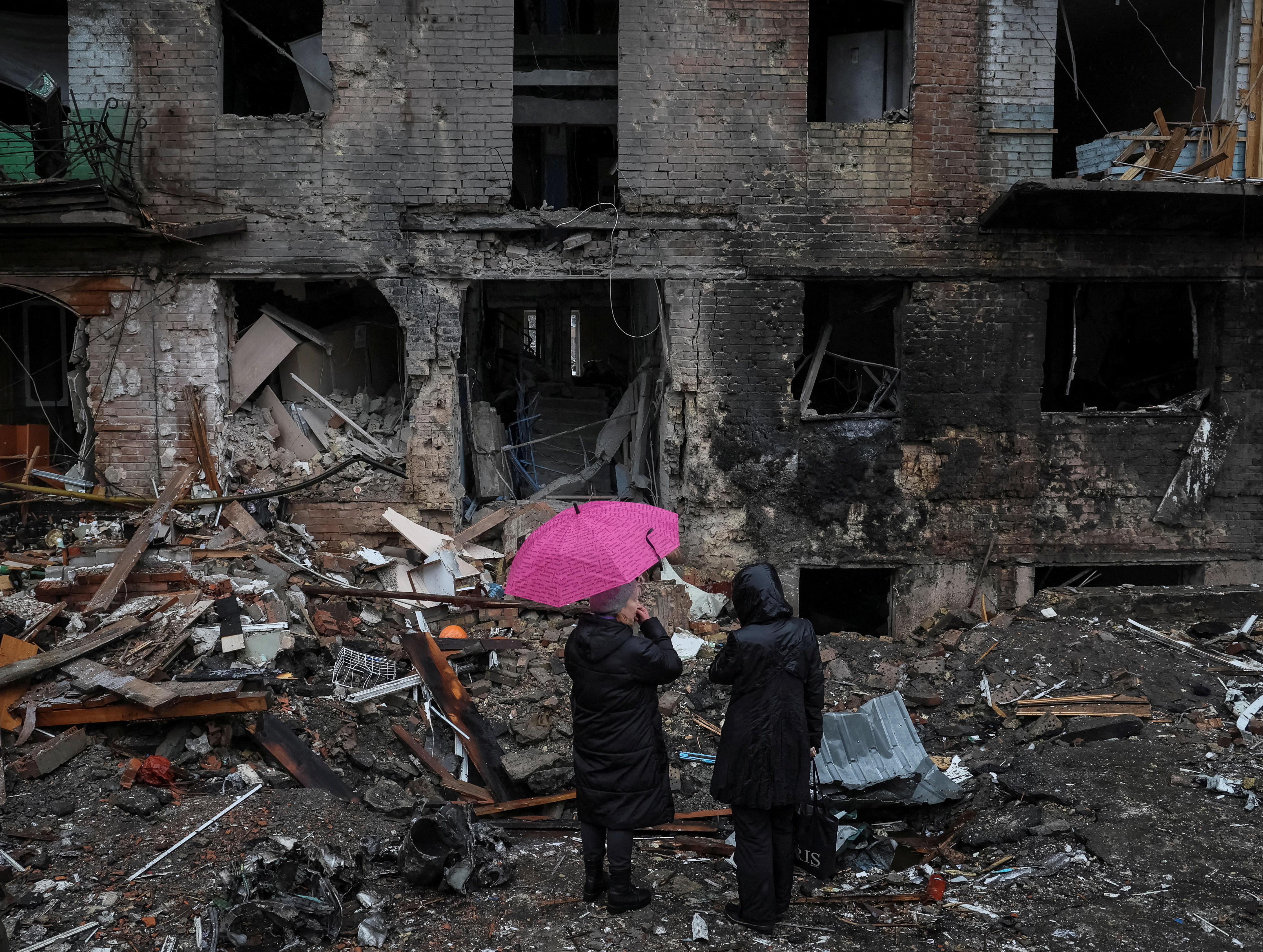
Local residents stand near their building destroyed by a Russian missile attack, as Russia’s attack on Ukraine continues, in the town of Vyshhorod, near Kyiv, Ukraine November 24, 2022. REUTERS/Gleb Garanich
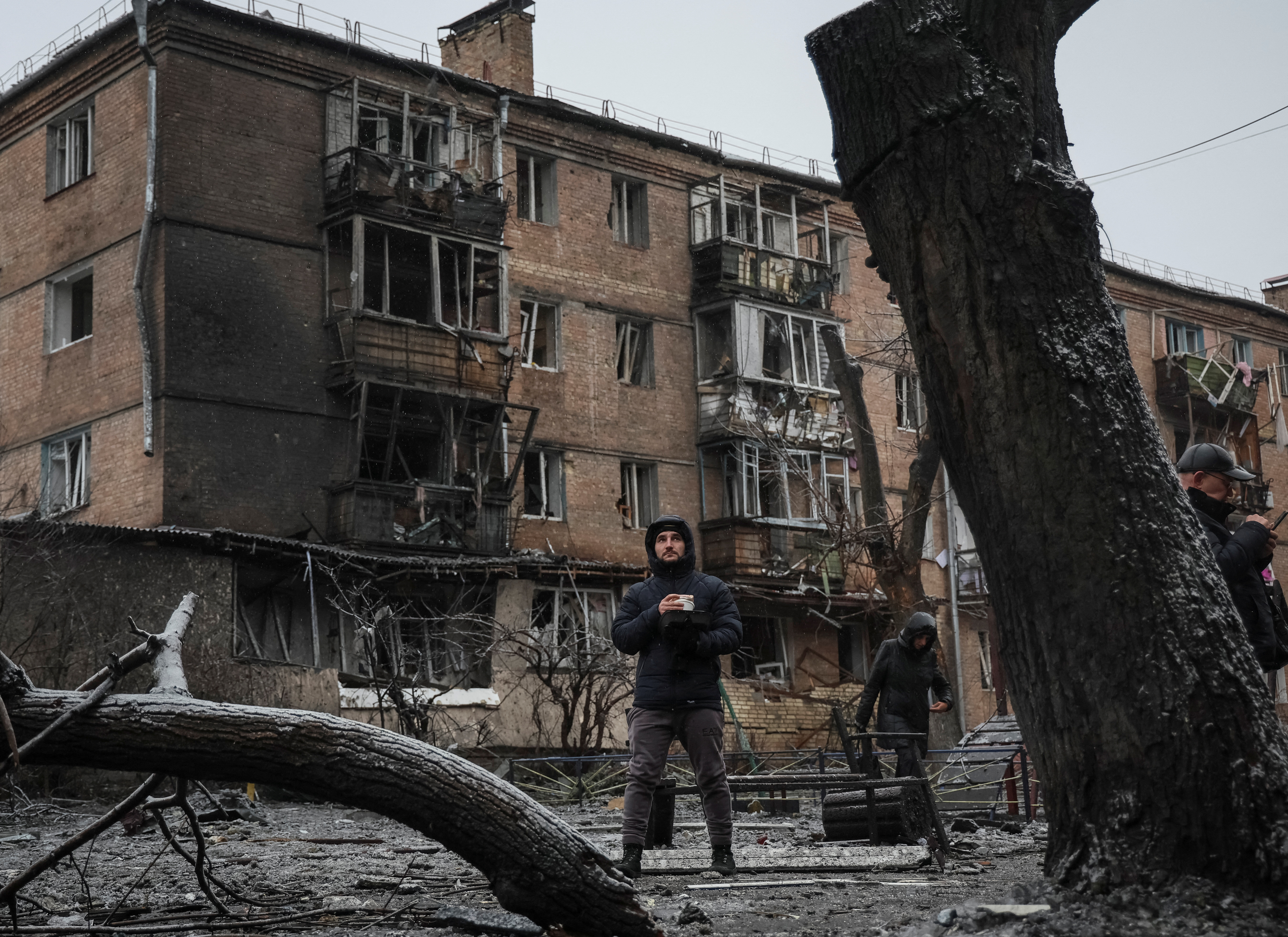
A local resident stands with a free hot food near a residential building destroyed by a Russian missile attack, as Russia’s attack on Ukraine continues, in the town of Vyshhorod, near Kyiv, Ukraine November 24, 2022. REUTERS/Gleb Garanich
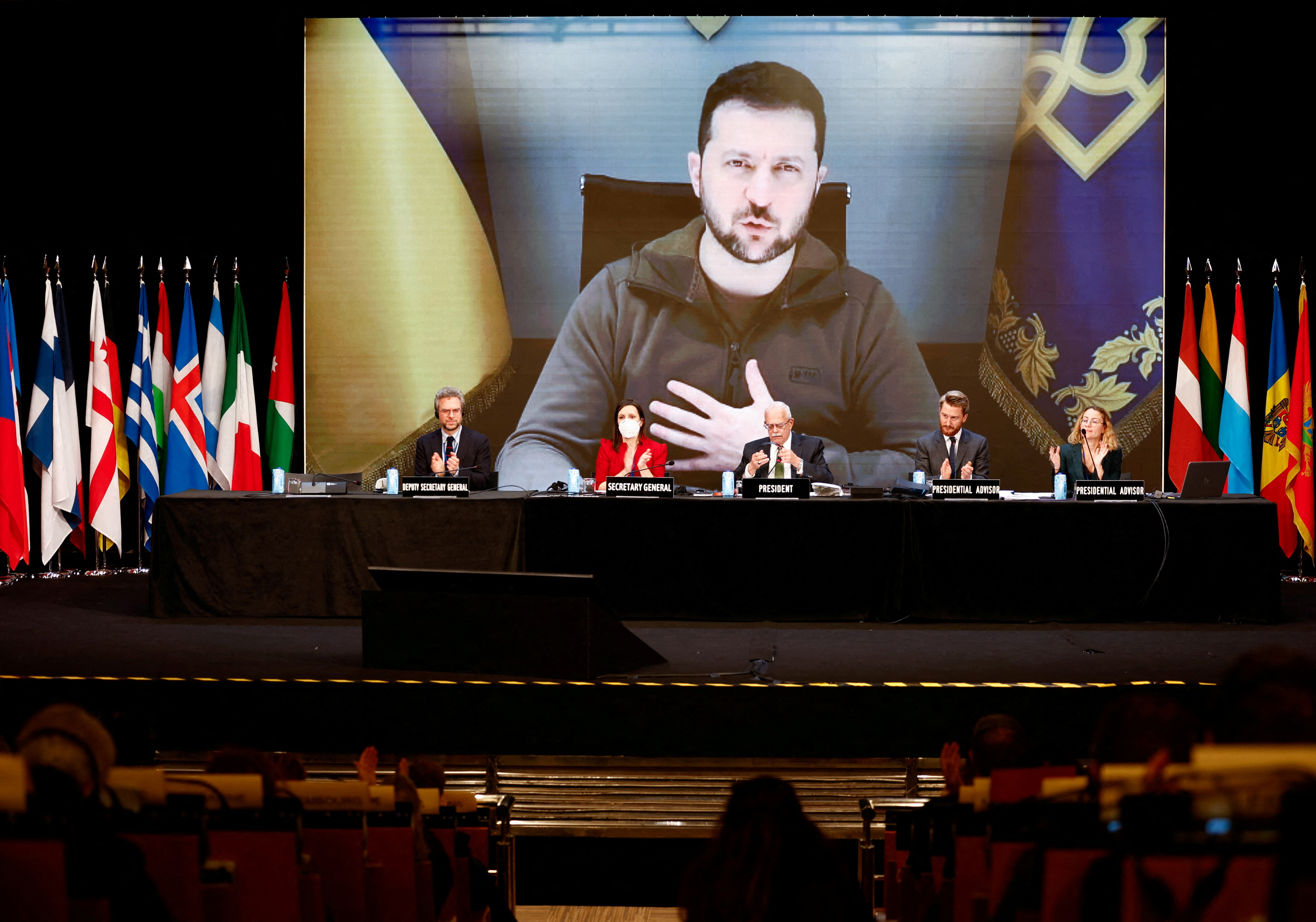
Ukraine’s President Volodymyr Zelenskiy is seen on the screen as he speaks during the 68th Annual Session of the NATO Parliamentary Assembly in Madrid, Spain, November 21, 2022. REUTERS/Juan Medina/File Photo
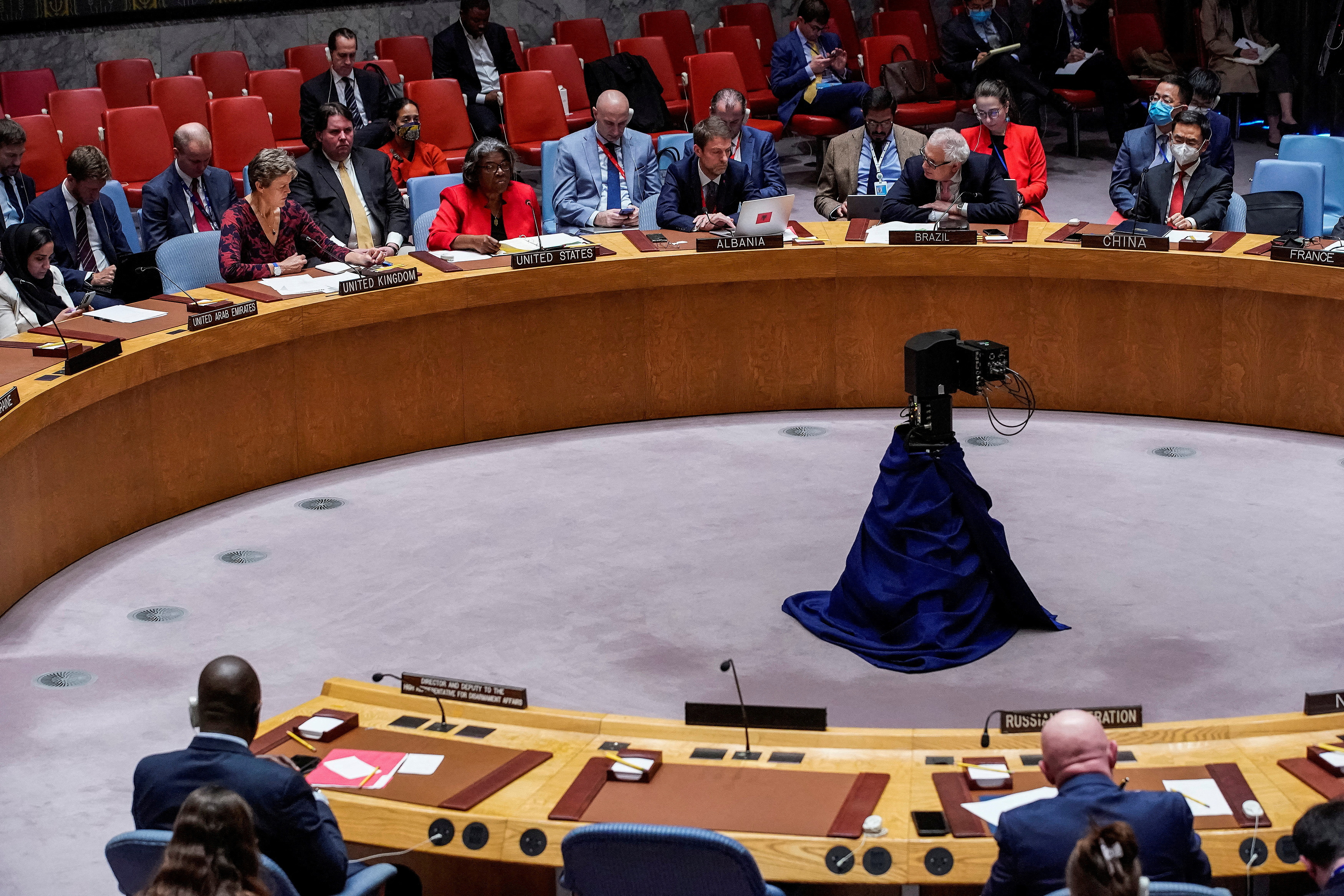
U.S. Ambassador to the United Nations Linda Thomas-Greenfield speaks during a meeting of the U.N. Security Council members at the United Nations headquarters in New York, U.S., October 27, 2022. REUTERS/Eduardo Munoz/File Photo
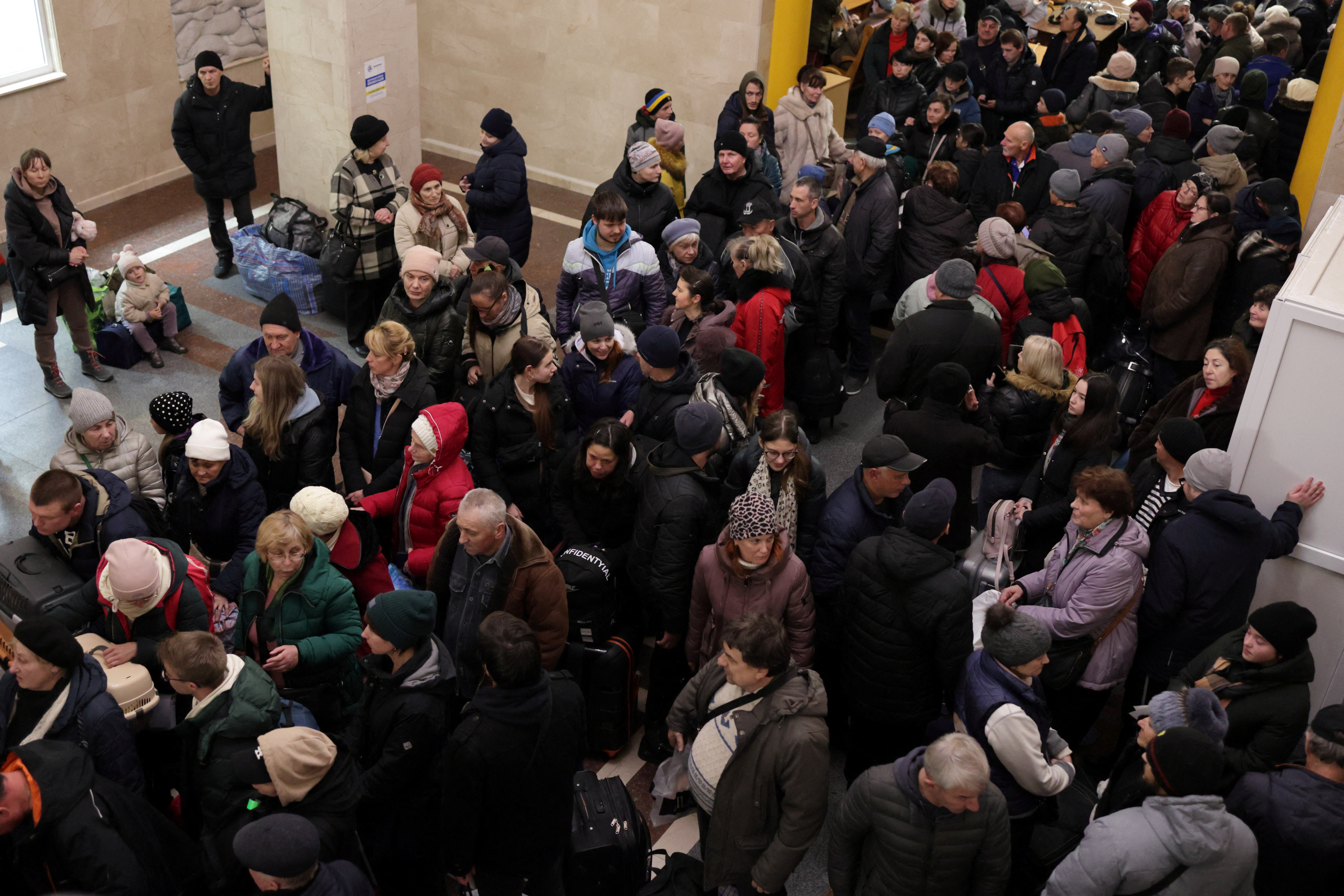
People wait for to get on a train bound for Kyiv, after Russia’s military retreat from Kherson, at the central train station in Kherson, Ukraine November 23, 2022. REUTERS/Murad Sezer
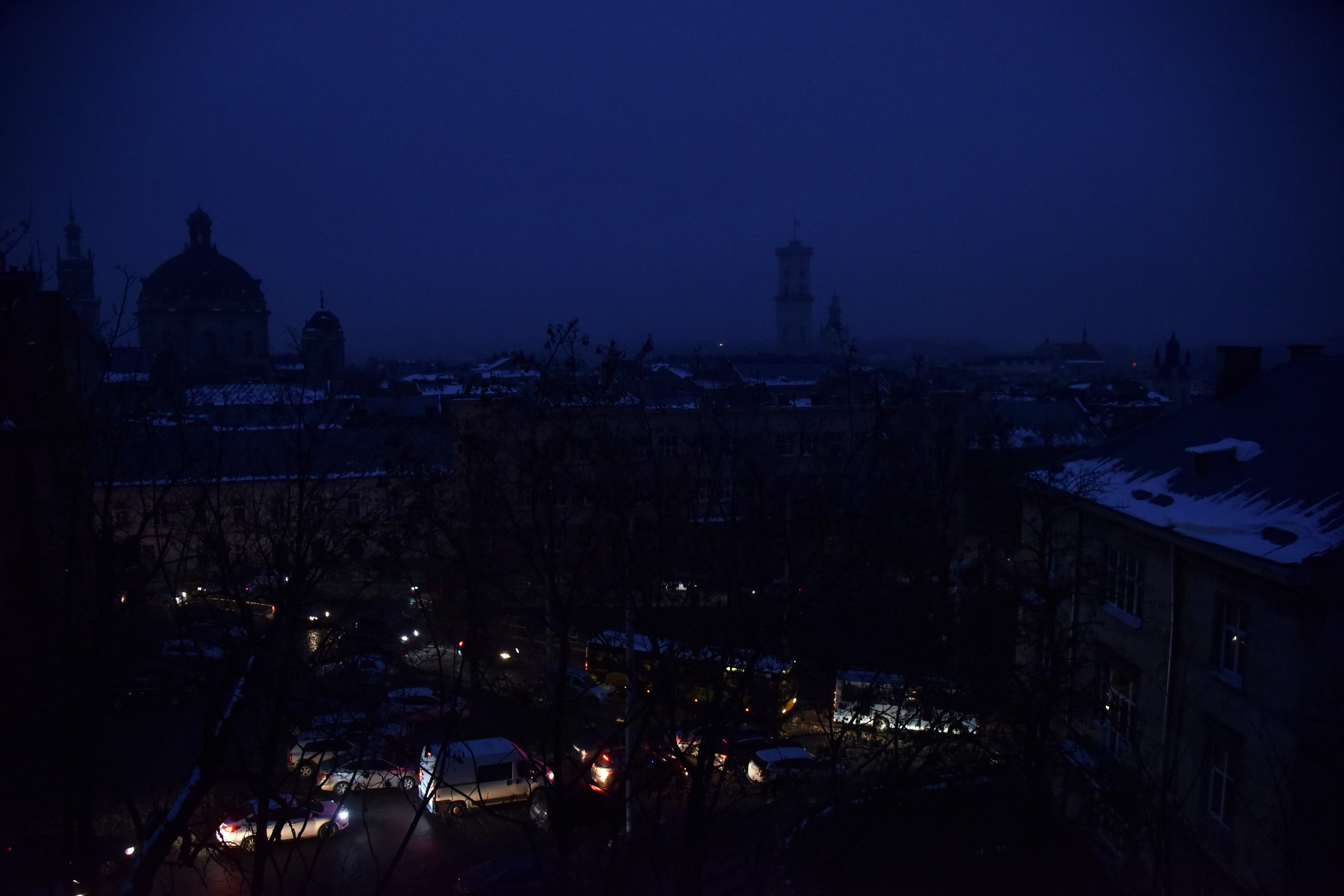
A view shows the city centre without electricity after critical civil infrastructure was hit by Russian missile attacks, amid Russia’s invasion of Ukraine, in Lviv, Ukraine November 23, 2022. REUTERS/Pavlo Palamarchuk
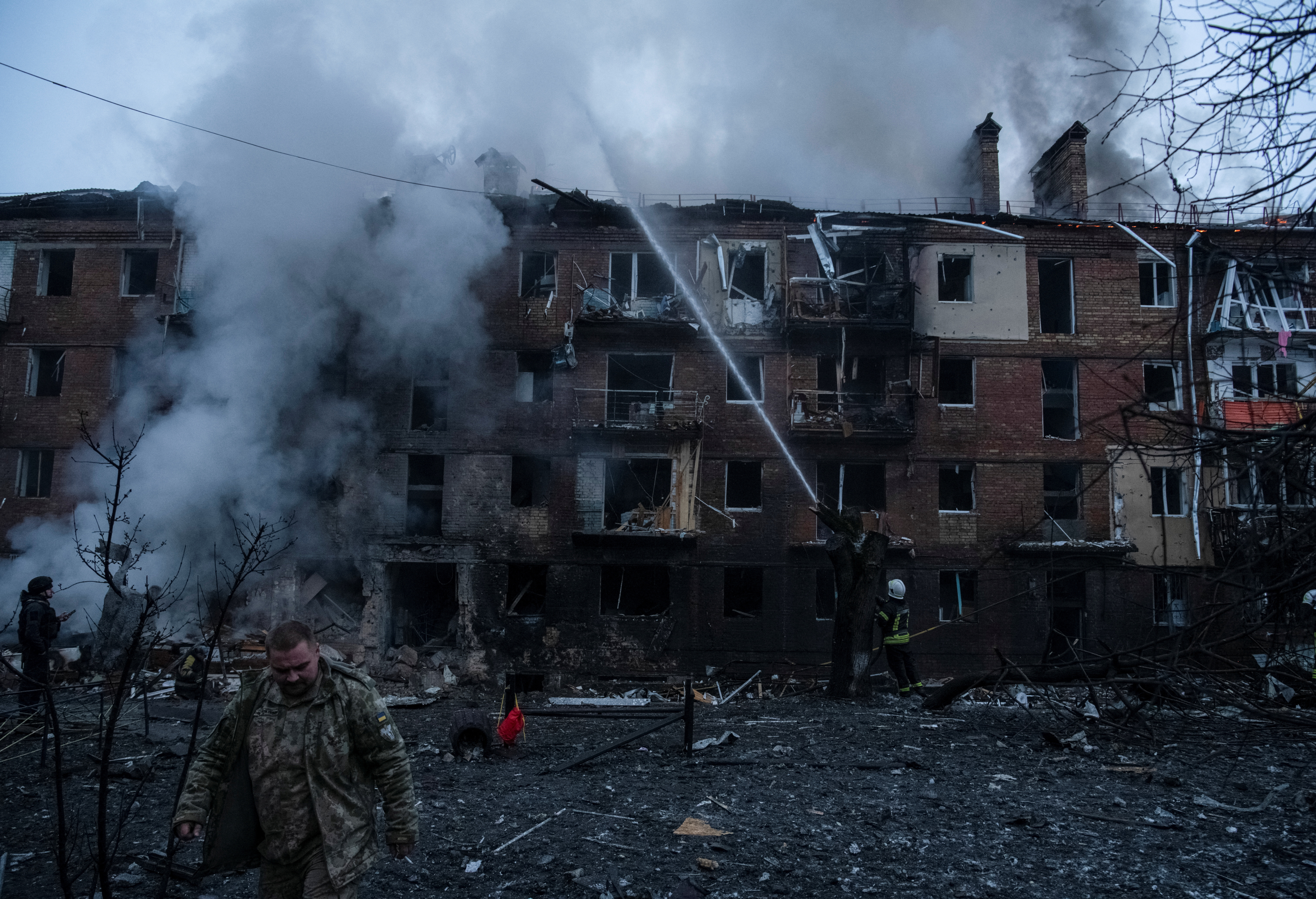
Rescuers work at a site of a residential building destroyed by a Russian missile attack, as Russia’s attack on Ukraine continues, in the town of Vyshhorod, near Kyiv, Ukraine, November 23, 2022. REUTERS/Vladyslav Musiienko
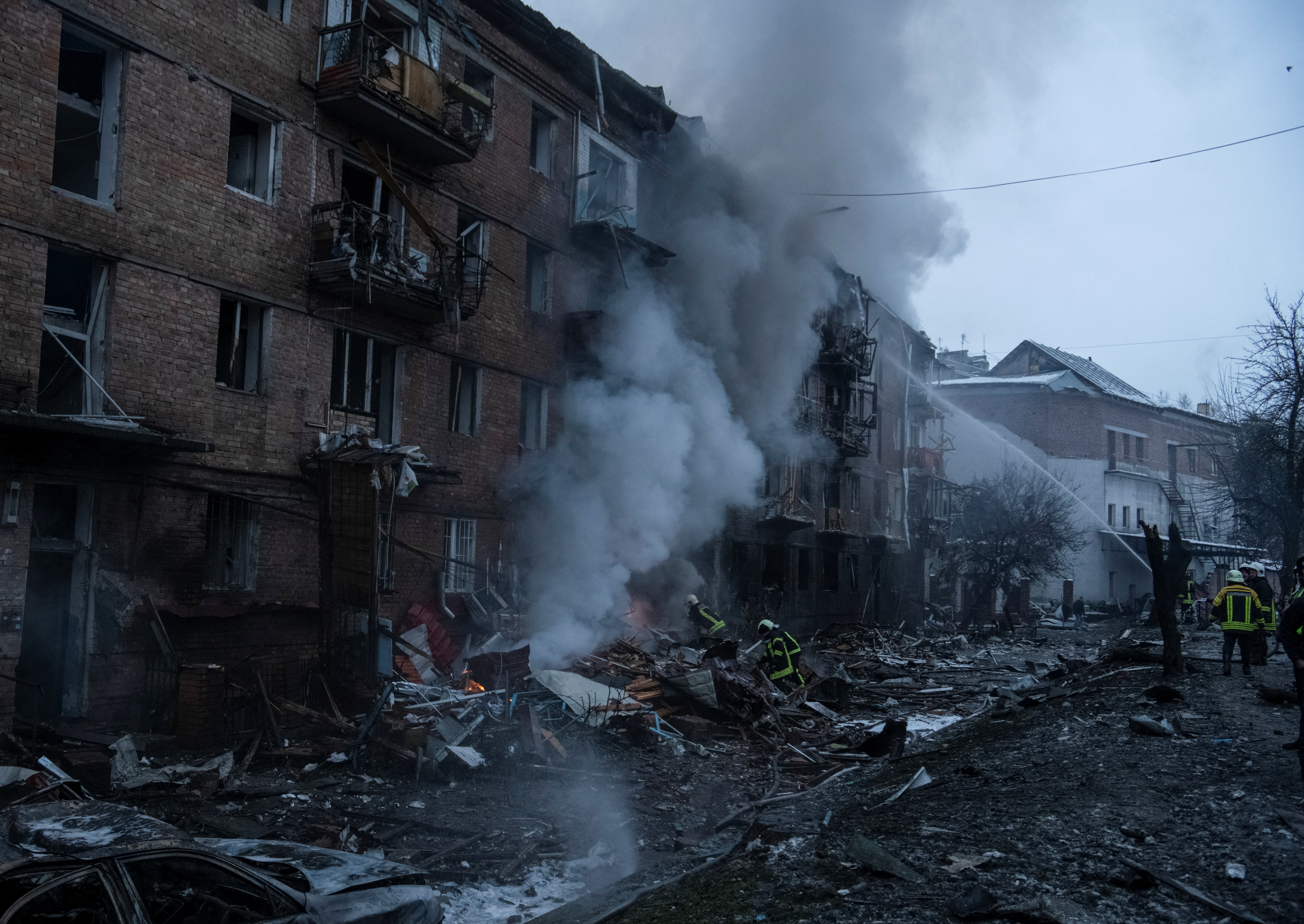
Rescuers work at a site of a residential building destroyed by a Russian missile attack, as Russia’s attack on Ukraine continues, in the town of Vyshhorod, near Kyiv, Ukraine, November 23, 2022. REUTERS/Vladyslav Musiienko
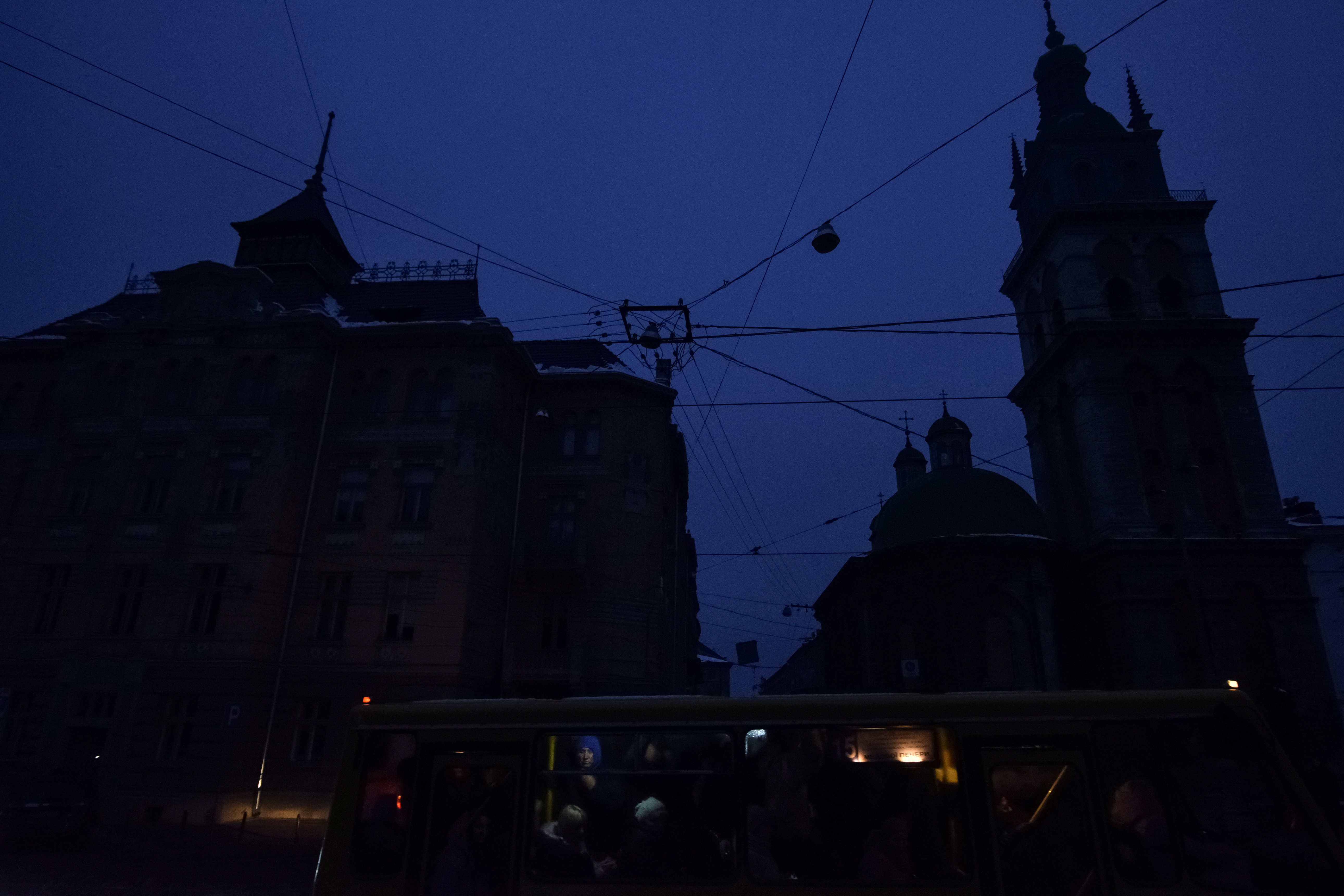
People ride on a bus in the city centre without electricity after critical civil infrastructure was hit by Russian missile attacks, amid Russia’s invasion of Ukraine, in Lviv, Ukraine November 23, 2022. REUTERS/Pavlo Palamarchuk
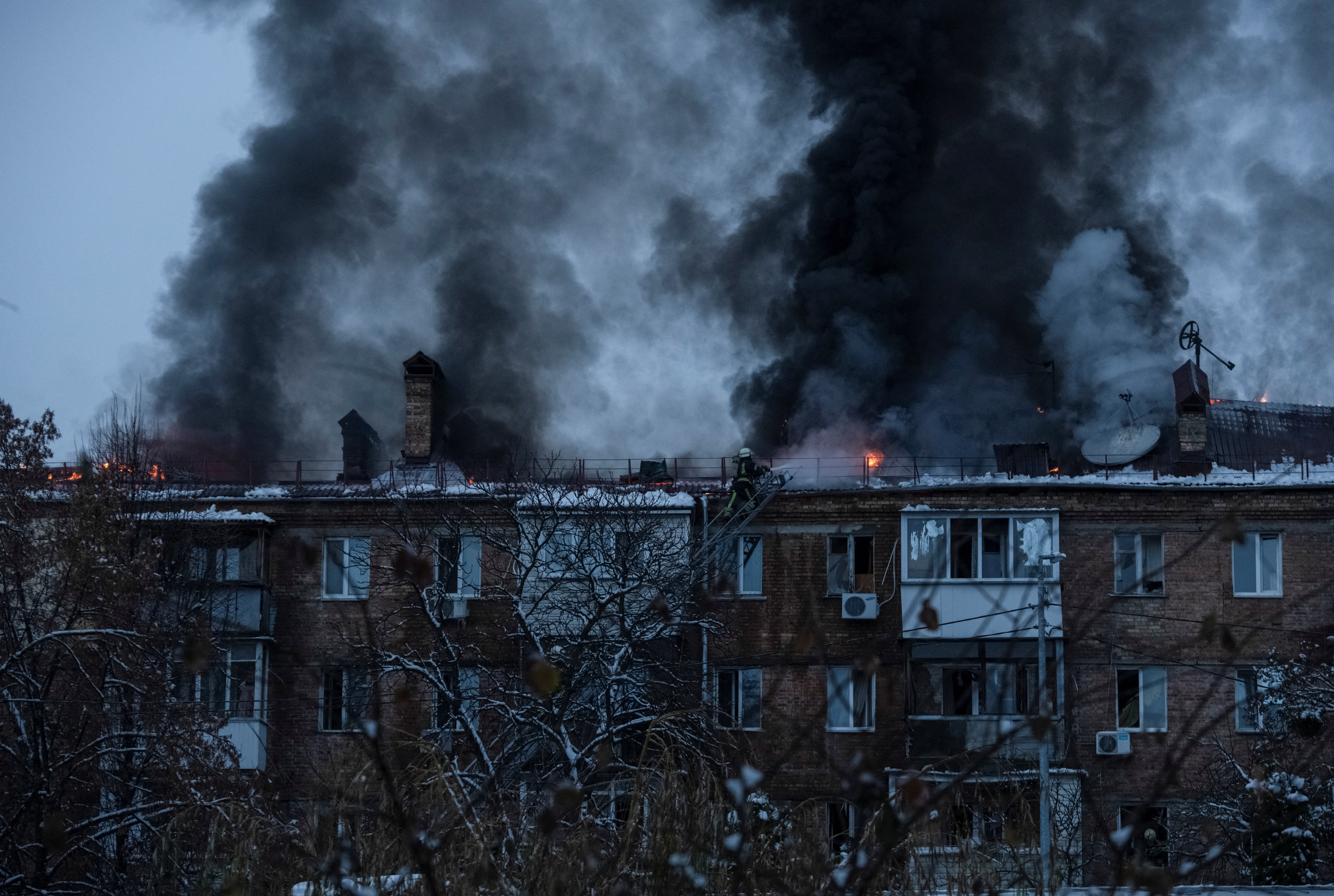
Rescuers work at a site of a residential building destroyed by a Russian missile attack, as Russia’s attack on Ukraine continues, in the town of Vyshhorod, near Kyiv, Ukraine, November 23, 2022. REUTERS/Vladyslav Musiienko
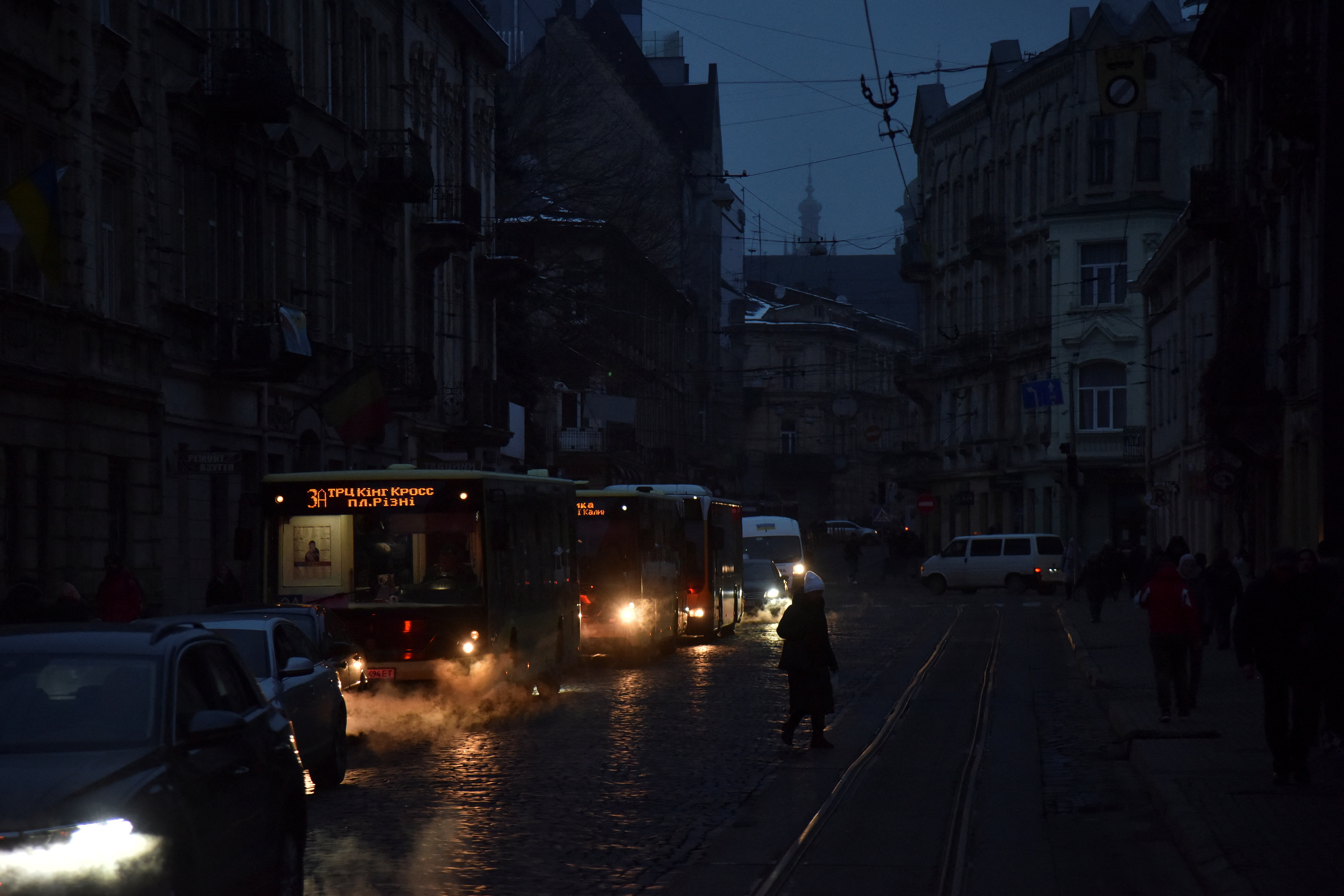
A view shows the city centre without electricity after critical civil infrastructure was hit by Russian missile attacks, amid Russia’s invasion of Ukraine, in Lviv, Ukraine November 23, 2022. REUTERS/Pavlo Palamarchuk
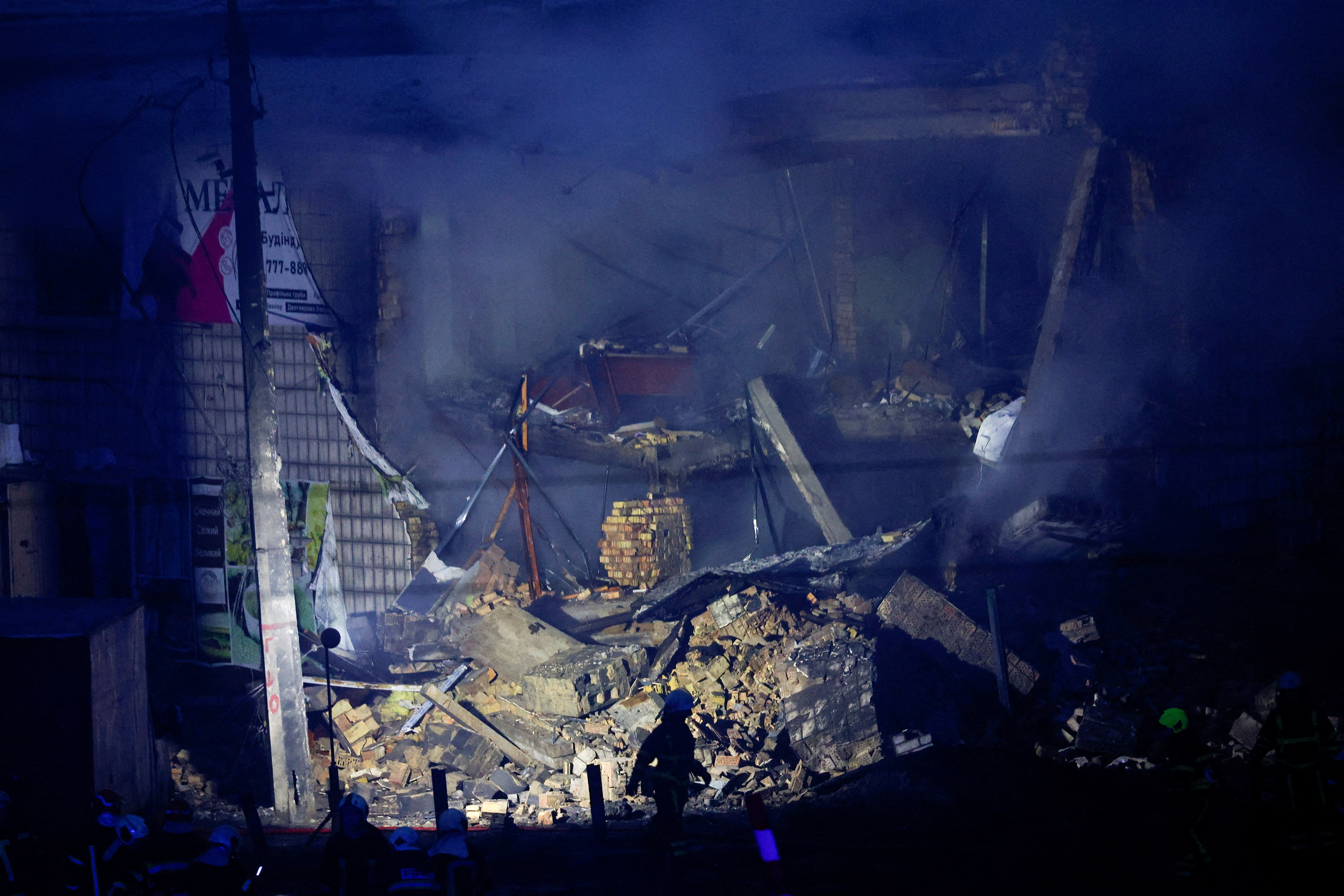
A rescuer walks at a site of a Russian missile strike, amid Russia’s attack on Ukraine, in Kyiv, November 23, 2022. REUTERS/Valentyn Ogirenko
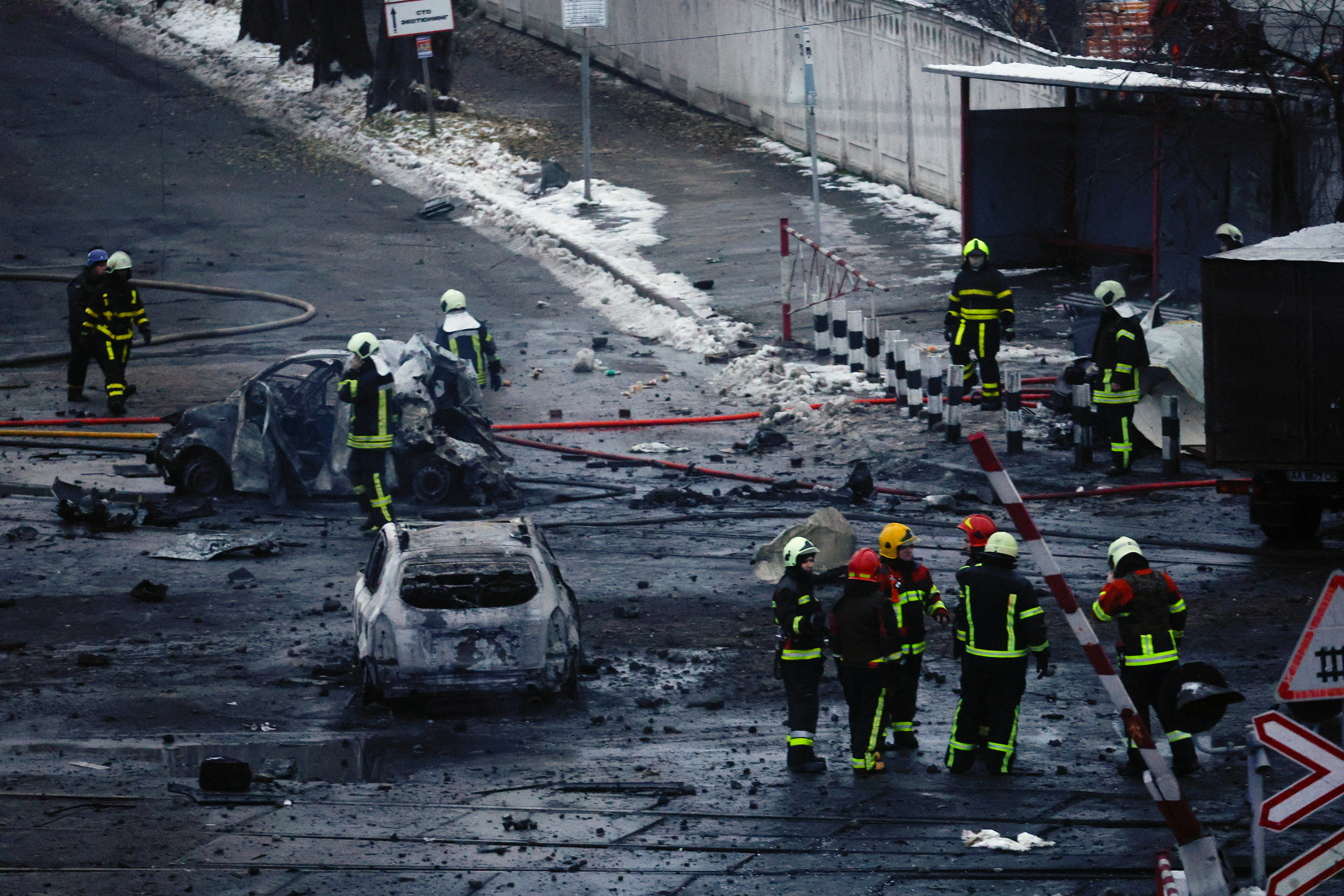
Rescuers work at a site of a Russian missile strike, amid Russia’s attack on Ukraine, in Kyiv, November 23, 2022. REUTERS/Valentyn Ogirenko
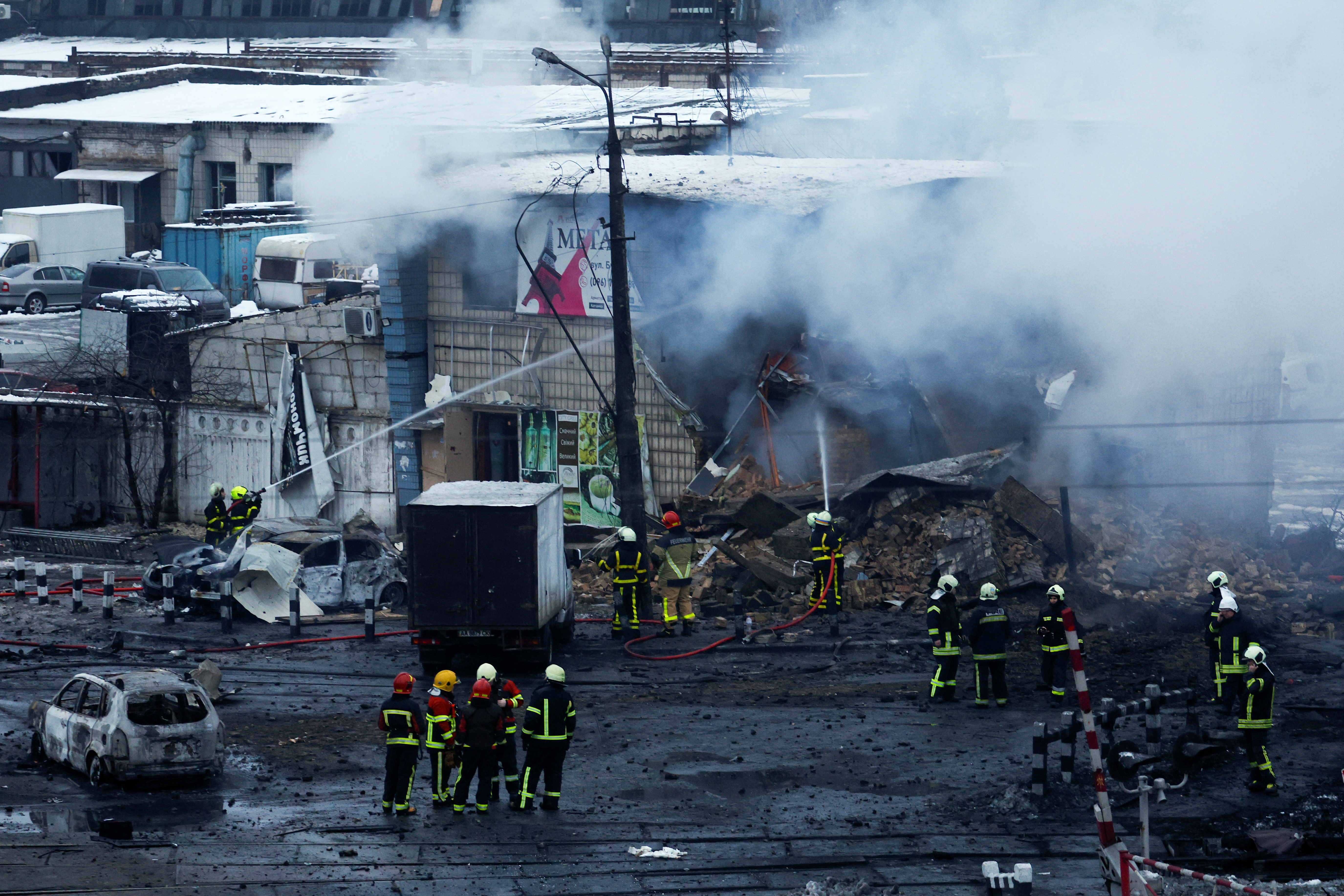
Rescuers work at a site of a Russian missile strike, amid Russia’s attack on Ukraine, in Kyiv, November 23, 2022. REUTERS/Valentyn Ogirenko
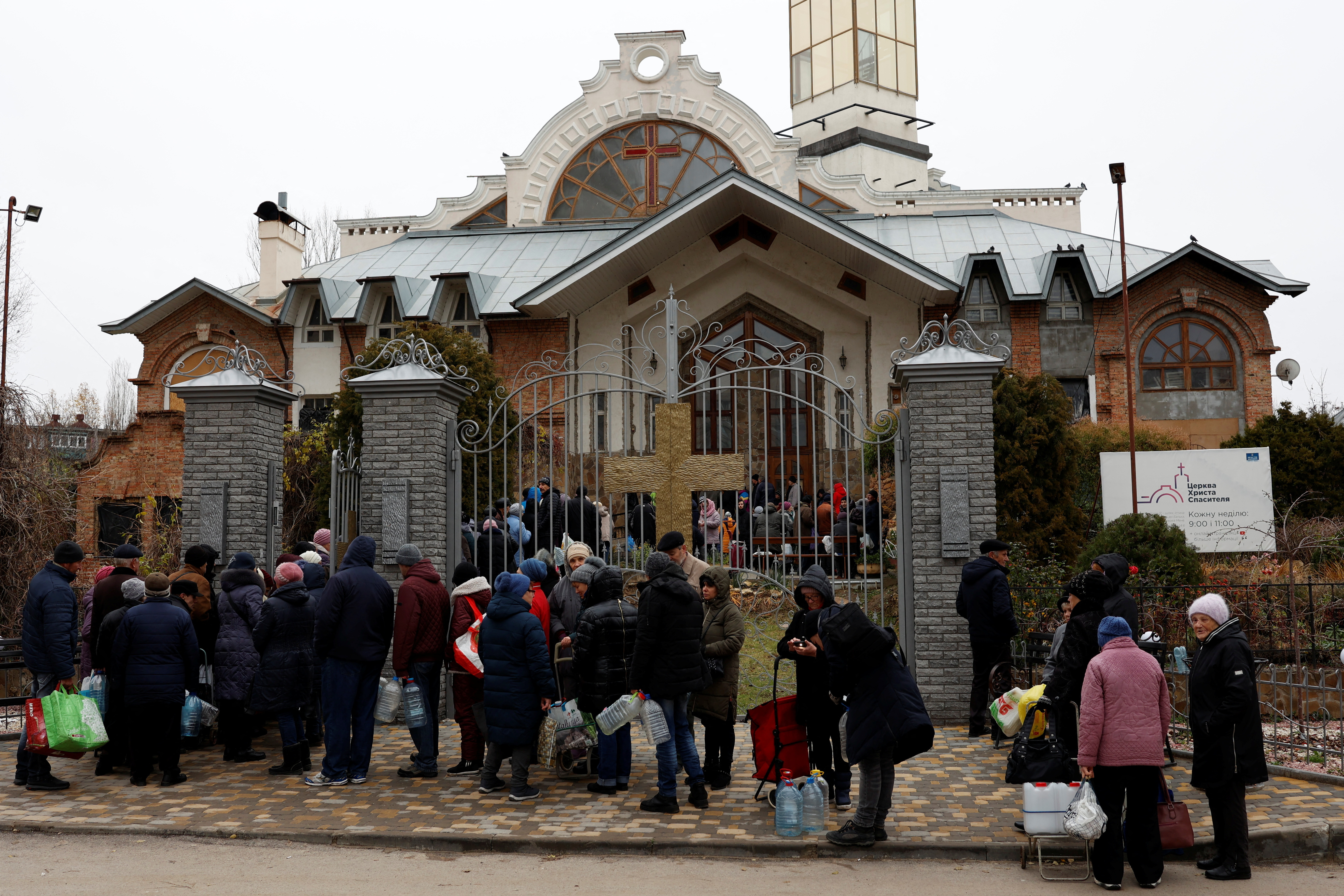
People wait in line to get food, water and aid after Russia’s military retreat from Kherson, outside the Church of Christ the Savior in Kherson, Ukraine November 22, 2022. REUTERS/Murad Sezer
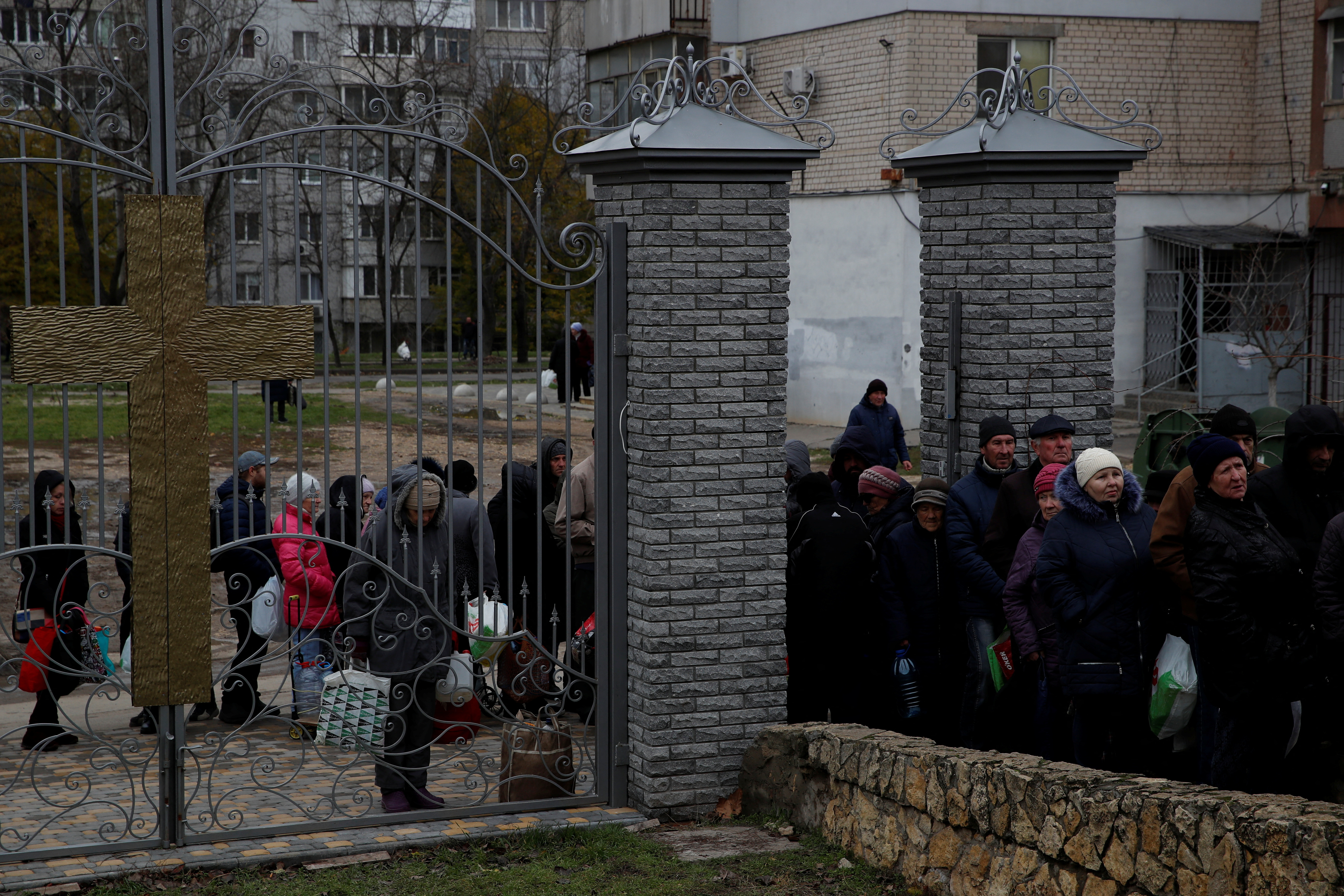
People wait in line to get food, water and aid after Russia’s military retreat from Kherson, at the Church of Christ the Savior in Kherson, Ukraine November 22, 2022. REUTERS/Murad Sezer
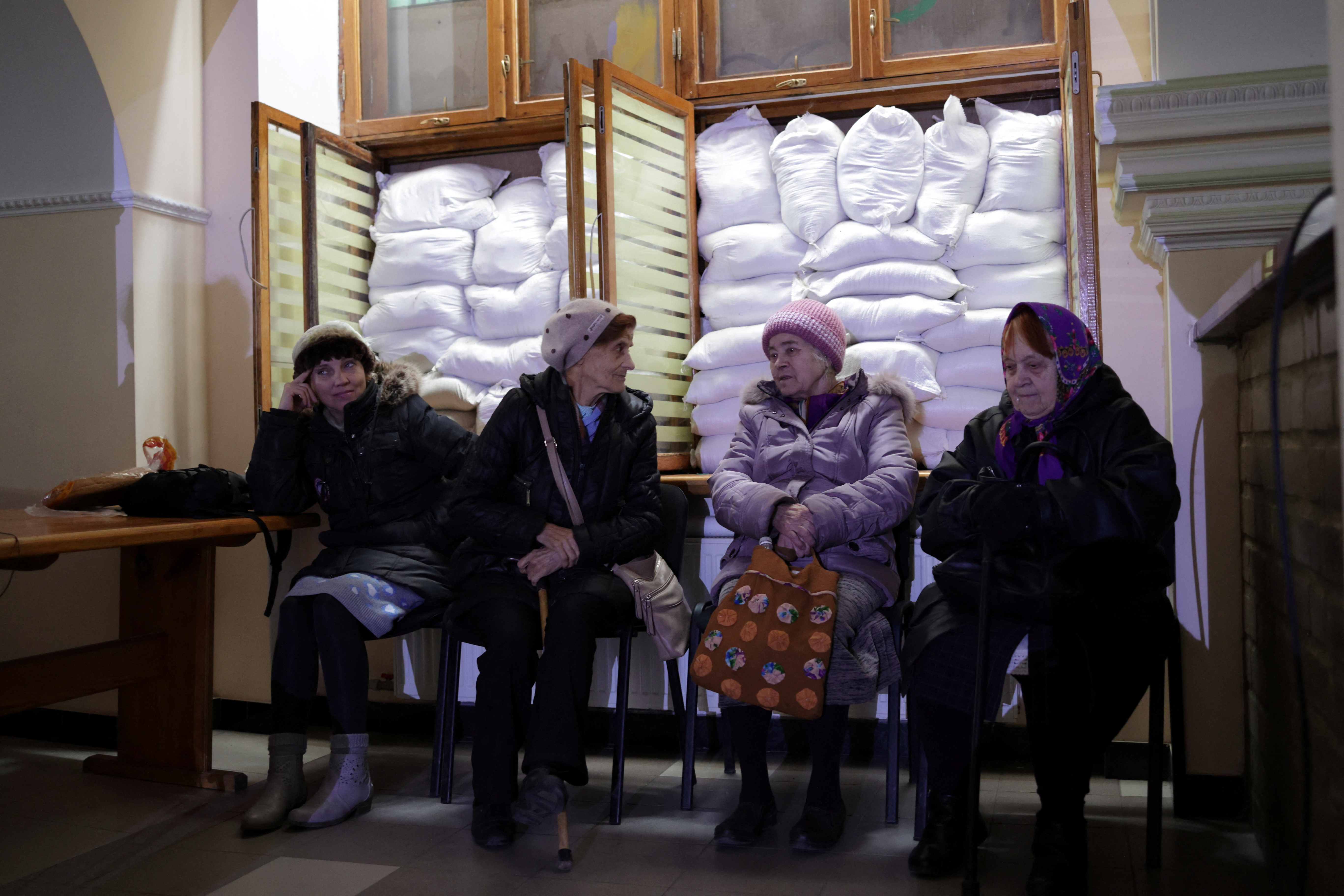
People wait to get food, water and aid after Russia’s military retreat from Kherson, at the Church of Christ the Savior in Kherson, Ukraine November 22, 2022. REUTERS/Murad Sezer
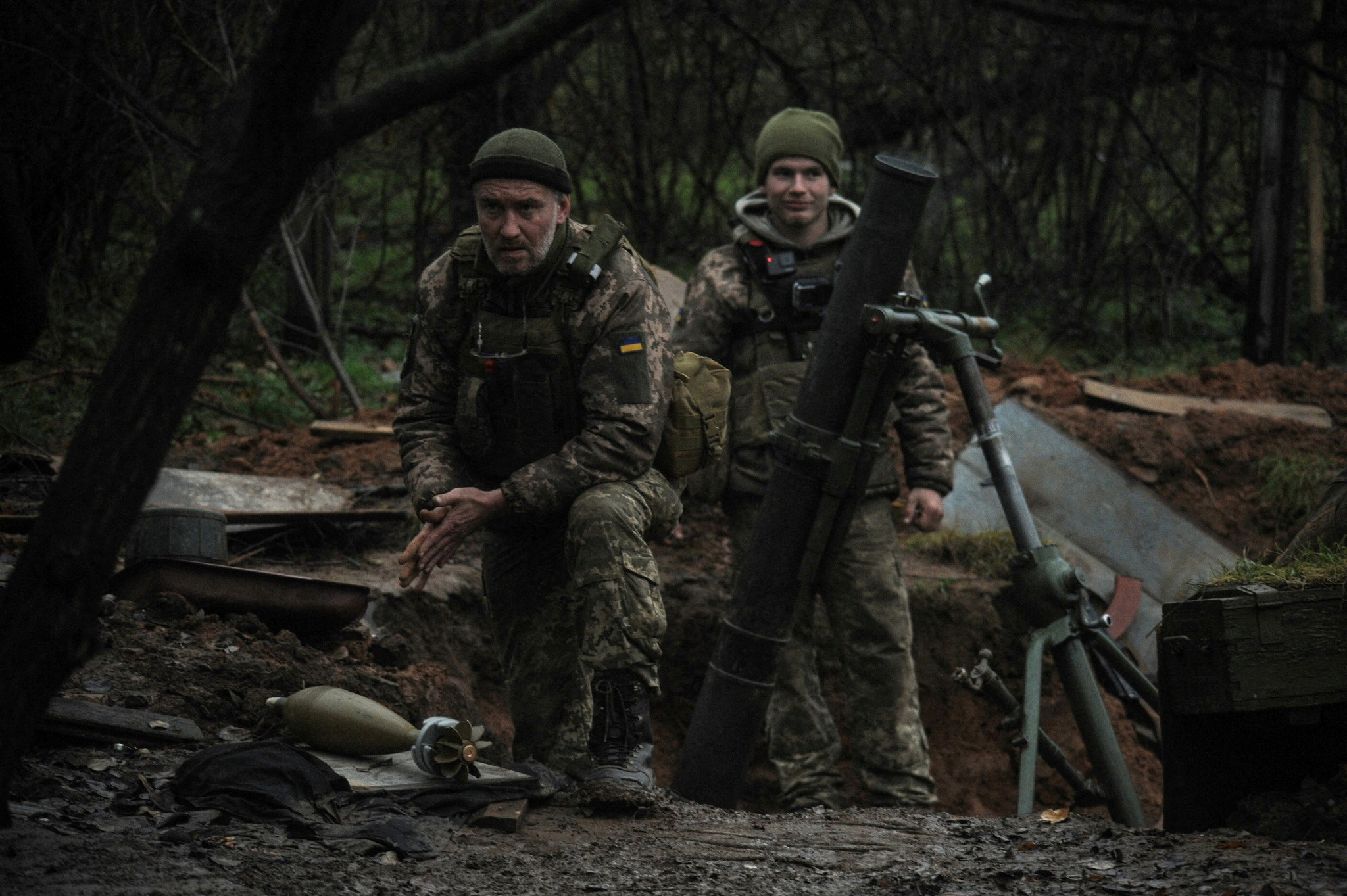
Ukrainian servicemen fire a mortar on a front line, as Russia’s attack on Ukraine continues, in Donetsk region, Ukraine, in this handout image released November 20, 2022. Iryna Rybakova/Press Service of the 93rd Independent Kholodnyi Yar Mechanized Brigade of the Ukrainian Armed Forces/Handout via REUTERS
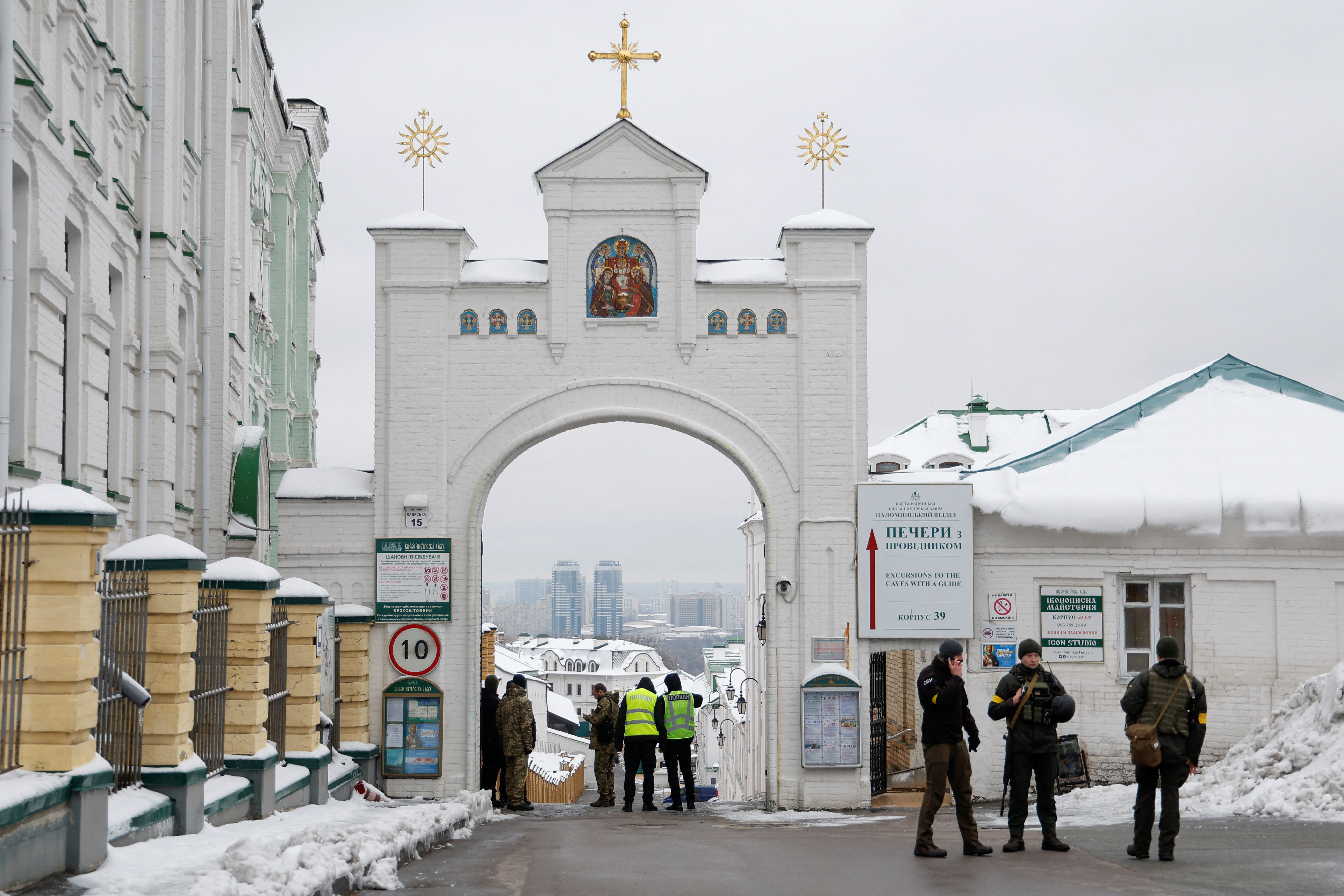
Ukrainian law enforcement officers stand next to an entrance to the Kyiv Pechersk Lavra monastery compound, amid Russia’s attack on Ukraine, in Kyiv, Ukraine November 22, 2022. REUTERS/Valentyn Ogirenko
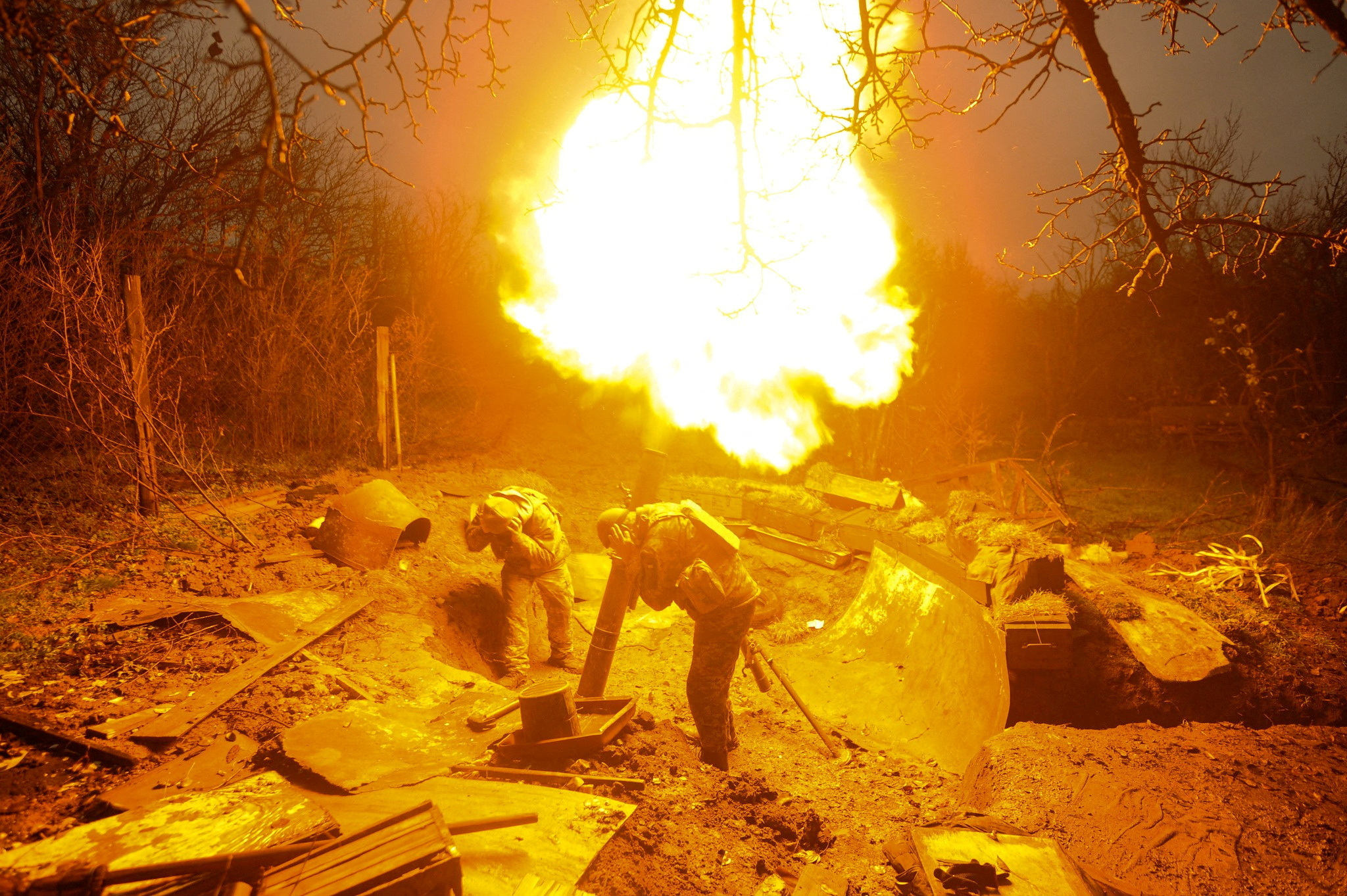
Ukrainian servicemen fire a mortar on a front line, as Russia’s attack on Ukraine continues, in Donetsk region, Ukraine, in this handout image released November 20, 2022. Iryna Rybakova/Press Service of the 93rd Independent Kholodnyi Yar Mechanized Brigade of the Ukrainian Armed Forces/Handout via REUTERS
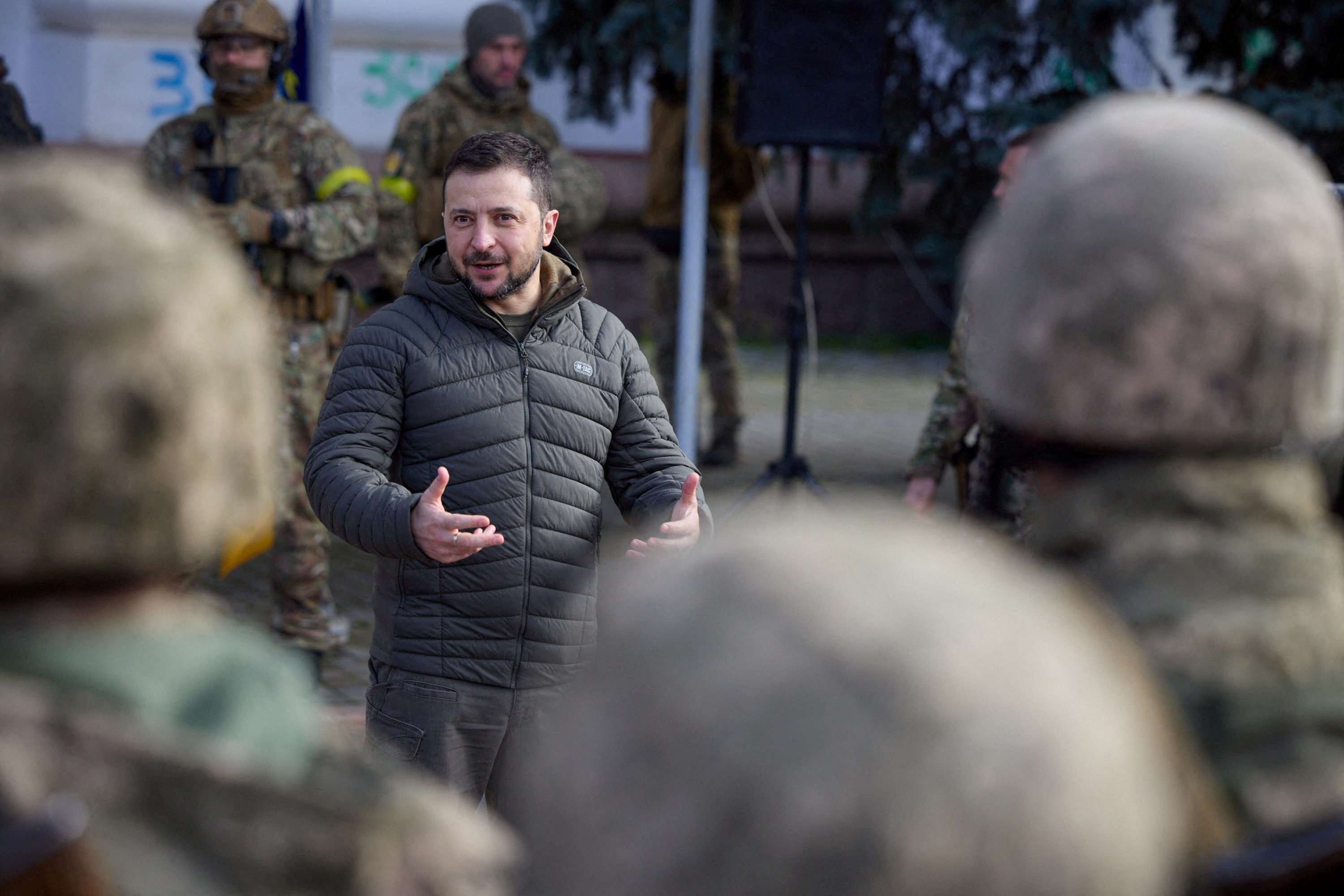
Ukraine’s President Volodymyr Zelenskiy visits Kherson, Ukraine November 14, 2022. Ukrainian Presidential Press Service/Handout via REUTERS
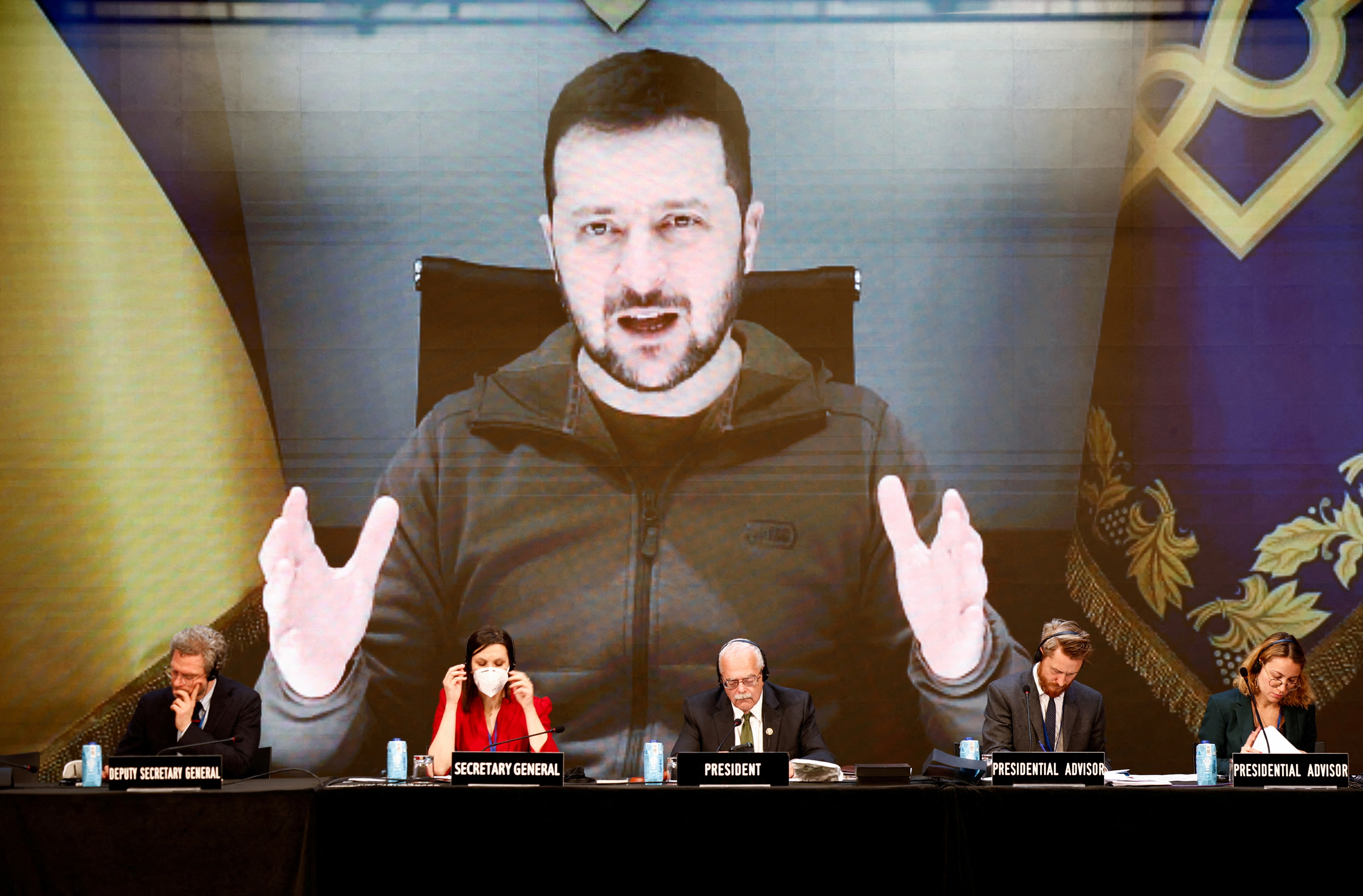
Ukraine’s President Volodymyr Zelenskiy is seen on the screen as he speaks during the 68th Annual Session of the NATO Parliamentary Assembly in Madrid, Spain, November 21, 2022. REUTERS/Juan Medina/File Photo























